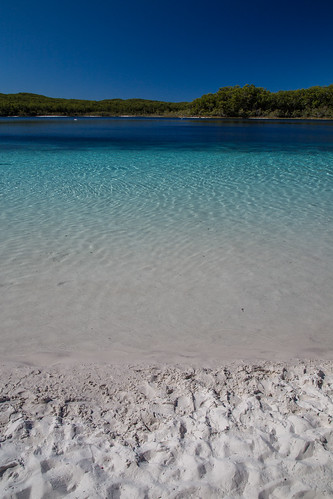Beautiful island made up entirely of sand dunes that’s at risk of disappearing
Fraser Island #FraserIsland

A beautiful island containing a 75-mile golden beach attracts hundreds of thousands of tourists every year – but it’s at risk of disappearing.
Campaigners previously warned the island, made up of lakes, rainforests and miles of sand dunes, is now at risk of being “loved to death”.
Fraser Island in Queensland, Australia, named K’gari in local language, attracts more than 600,000 visitors a year with its fascinating landscapes and dense wildlife.
The landmass is home to more than 350 different bird species, including 20 kinds of migratory birds that fly in from places as far as Siberia.
It is also home to nearly 50 mammal species such as the swamp wallaby, the sugar glider, the small-eared mountain possum, and most famously the Fraser Island dingoes, which sits at the top of the island’s food chain.
But for decades, the island has faced a variety of evolving threats.
For the latter half of the 1900s, humans over-extracting the island’s natural resources was the most urgent problem – with campaign groups popping up to tackle the problem.
The ideal outcome for the residents, for a long time, was to generate income from ecotourism rather than from pillaging the land.
But more recently too much ecotourism has been a problem for the island too, with thousands of four-wheel-drive vehicles rolling over the island’s beaches and along sand tracks.
Peter Shooter, the president of the Fraser Island Defenders Organisation – first set up in the 1970s to tackle problems such as sand mining and logging – previously told The Guardian: “The tourism industry has grown huge, and with that industry comes impact.”
He added: “Fido finds itself in a position where we advocated for a shift in the island’s economy and now we have to live with the consequences.”
The island’s unique features – its gorgeous forests, heathlands, rainforests in the middle of the island and creeks – are also being more and more threatened by climate change.
According to the Queensland government, the threat is currently considered “moderate” but is tipped to move to “very high” in the medium to long term.
Experts have reportedly said the rainforest ecosystems have existed because the dunes have remained in the same place for so long.
But rising sea levels are predicted to erode the dunes. Moreover, bushfires, worsening droughts and higher temperatures are also expected to damage the island.
Another threat comes from an invasive plant disease called myrtle rust, which affects the trees on the fringes of the rainforest and melaleuca swamps.